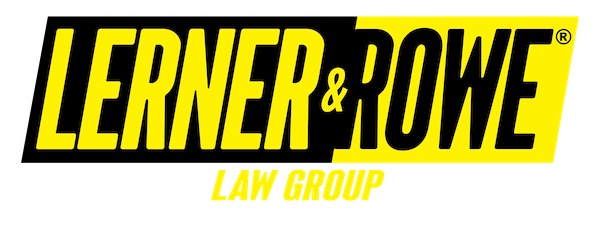Communication Policy for Individuals with Sensory Disabilities
Lerner & Rowe, P.C. complies with the “Arizonans with Disabilities Act” and “Title III of the Americans with Disabilities Act.”
When necessary for effective communication, Lerner & Rowe staff will provide a qualified interpreter or other appropriate auxiliary aid or service. Individuals with disabilities will not be charged for auxiliary aids or services (including interpreters) and are not required to bring another individual to interpret for them.
Lerner & Rowe staff is required to abide by the protocol as stated below.
Identify the Disability and Services Required for Successful Communication:
When Lerner & Rowe is notified of an auxiliary aid or service request, employees must confer with the client with the disability (and if that is not feasible, they will confer with the requestor) to discover the circumstances, requirements and preferences of the individual with the disability. Lerner & Rowe will recognize his or her preferred mode of communication prior to determining the type interpreting service (or other auxiliary aid or service) to be secured.
The following methods of communication are examples of services Lerner & Rowe will provide:
- American Sign Language;
- Signed English;
- Oral interpreting;
- Large Print Documentation; and
- Braille.
In determining the type of service which is necessary, the following will be considered:
- The nature, length and importance of the communication at issue;
- The individual’s communication skills and knowledge;
- The individual’s request for or statement of need for an interpreter; and
- The type of auxiliary aid or service necessary to ensure effective communication.
Pursuant to A.R.S. § 36-1971, a qualified legal interpreter must be certified by the Arizona Commission for the Deaf or Hard of Hearing to interpret legal matters. In compliance with the Arizonans with Disabilities Act and Title III of the Americans with Disability Act, Lerner & Rowe staff will provide a qualified interpreter who is able to interpret effectively, accurately and impartially both receptively and expressively, using any necessary specialized vocabulary.
Take Action Promptly to Ensure Services are Provided in a Timely Manner:
Lerner & Rowe staff shall respond promptly to requests for auxiliary aids and services to ensure individuals with disabilities have an equal opportunity to participate in and benefit from our services. Documentation of disability will generally not be requested or required.
If a particular auxiliary aid and service or supplier of the service will result in delays of client services, Lerner & Rowe will consider alternative suppliers or effective auxiliary aids and services. For example, if a particular interpreter determines he/she will take two weeks to provide a sign language interpreter, Lerner & Rowe will inquire with other interpreters, then Lerner & Rowe will consider providing a qualified interpreter using a service that provides video interpreting or other effective means of communication.
Lerner & Rowe Must Ensure Effective Communication with Clients at All Times Throughout the Entire Duration of the Matter:
Lerner & Rowe employees must ensure that effective communication is accomplished between Lerner & Rowe’s prospective and current clients throughout every phase of the matter, including but not limited to the following:
- The facts of the case must be communicated, specifically during the initial interview.
- The client must understand the Fee Agreement and scope of services set forth in the Fee Agreement.
- Lerner & Rowe staff must ensure effective communication regarding accident related treatment and settlement negotiations (such as risks and benefits of a proposed settlement).
- The client must understand and be able to communicate with all entities involved throughout all litigation procedures (including claim adjuster/adverse counsel).
- Termination of representation, denial of representation and presentation of the terms must be communicated.
Only certified legal interpreters will be used when communicating during the above-described phases of each matter. Pursuant to A.R.S. § 36-1971, a qualified legal interpreter must be certified by the Arizona Commission for the Deaf or Hard of Hearing.
Lerner & Rowe staff shall identify when a sensory disability exists and will determine what type of services are required for successful communication. Lerner & Rowe staff will not refuse services to potential clients with sensory disabilities if they require auxiliary aids and services for effective communication.

